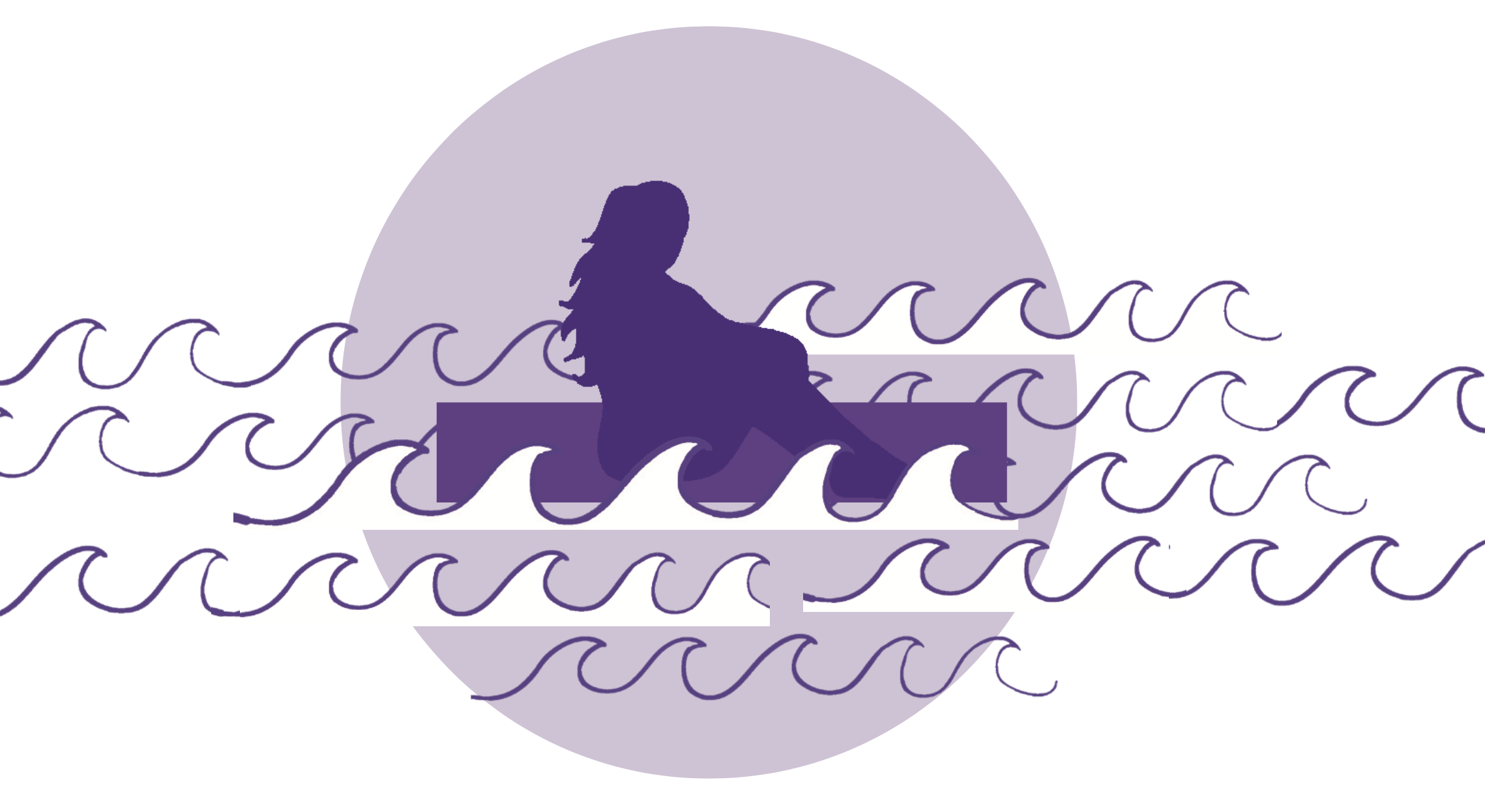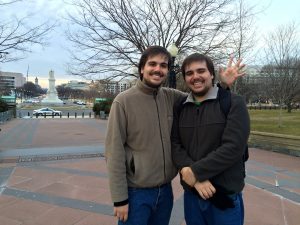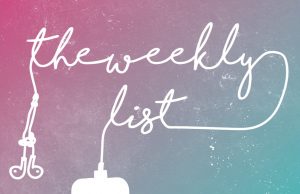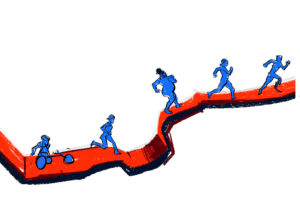The power of my story compelled me to write this piece. But my parents reminded me what having my full name attached to an honest description of my illness would mean for my hopes of employment. Despite the Americans With Disabilities Act (ADA), which makes it unlawful to discriminate in employment against qualified individuals with disabilities, the stigmas and prejudice surrounding chronic illness win out over fair employment. Sharing my story is incredibly important, but it is also a story society has not yet adapted to fully accept.
***
I woke up paralyzed. My senses quickly stirred. I could smell the chocolate-chip pancakes cooking downstairs. I could see the glow-in-the-dark stars on my ceiling. I could hear “That’s Amore” playing in the living room. The only thing missing was feeling. I couldn’t move anything from the neck down.
I don’t recall what lapsed between my ear-piercing cry and my parents rushing me to the ER, but I do remember the smell of the hospital that day. The overwhelming scent of antiseptic that burned my nostrils and hinted at the painful reality to come: a lifetime of illness. Fortunately, the paralysis was only temporary, but in a very real sense, my 9-year-old self never left that hospital room alive. The person who survived wasn’t her, but a shadow of who she used to be.
I live in this void between fatality and wellness that even doctors don’t understand. My illness is permanent and invisible. When I try to explain my situation, I am often met with the response, “But you don’t look sick.” The crippling pain I feel in my neck isn’t normal for someone my age. My constant fatigue even after 16 hours of sleep isn’t obvious. On the outside, I am the picture of the average 20-year-old. On the inside, I am disintegrating.
Because my illness is invisible, there’s always this underlying expectation that I’ll get better—that the indefinite timeline looming over my head is really just finite. The type of chronic illness I have doesn’t abide by predictability. Chronic illness is different for everyone. For me, I’ll always have the illness, but the symptoms may not always manifest. I could wake up one day with no symptoms, just to wake up to my typical reality the next.
I’m also constantly given unsolicited advice: Have you tried tea leaf extract? What about eating more cinnamon? I know it’s an attempt to be helpful, but I wish people knew that as the person suffering, I’ve explored every option. Having to say “Yes, I tried that” and “No, it didn’t work” only reinforces my hopelessness.
The biggest challenge chronic illness has presented is the difficulty of maintaining relationships. Nine-year-old me was a go-getter, making friends everywhere she went. I wish I was still her. Instead, I constantly feel like a burden, because I am. There’s no denying it. I try to hide my illness, but when my friends ask “How are you?” reality speaks before I have a chance to stop it.
“My pain is worse this week, and Advil isn’t helping. I slept over 11 hours last night but I’m still exhausted. I have two doctors’ appointments but also two midterms. I can’t handle it all.”
I’m the friend who always bails. The friend who’s always sick. The friend who’s always complaining. And despite what they say, people do treat me differently, like I’m fragile and with one misstep I could shatter. Granted, I could, but not because my boss gave me three extra shifts or because my friend decided I should plan her Tombs night alone. Eventually, people give up on me, and I can’t blame them. I’m no stranger to loss. Depression and anxiety go hand-in-hand with chronic illness.
I always wait for my friends to text me, giving them the chance to opt out of our friendship at any time. If I do text first, I’m terrified of annoying them. There’s a voice in my head over-analyzing everything. I texted them three times in a row, is that excessive? It’s been a few hours since I asked them to hang out, that must mean no, right? It’s irrational and it’s not the true me. It’s the part of me that knows how much of a responsibility I am. The part of me that knows friendships are meant to be easy-going. The part of me that knows I take way more than I give. There are so many people I’ve let drift away because I felt their lives would be easier without me.
For me, FOMO isn’t the fear of missing out. It’s the feeling of missing out. I’ve deleted and re-downloaded my social media apps more times than I can count. I put on a façade, snap a picture every few weeks, and seem normal. Other nights, I scroll through the feed and see all the things I should be doing but can’t: going out with friends, visiting exhibits, going to the gym, Sunday brunches.
I’ve been blessed to have a few friends stand by my side, but that little voice is always there telling me what a burden I am. In almost every message I send, I’m apologizing. I write, “I’m sorry I didn’t respond,” leaving out that I fell asleep again. I text, “I’m sorry I haven’t been there for you,” but I don’t add that I can barely be there for myself.
They often get mad at me for not relying on them more, but feeling like a burden means I never want to ask for help. It’s a constant struggle between asking for enough help so that they feel I’m taken care of, but not too much help that I overwhelm them. The few friends who have stayed, the ones who text me to check in even when we haven’t talked in a while, the ones who randomly offer to come to doctors’ appointments, the ones who surprise me with my favorite candy after a hard day—they are the people who keep me afloat.
But I also keep waiting for the day when they get tired of it all. I know I’m tired of it. How much can I expect my friends to deal with? Sometimes I’m filled with jealousy as I watch them live their lives without the fatigue that comes with even 18 hours of sleep and without harboring a mini-pharmacy of vital medications in their desk drawers.
For the majority of my young adult years, I’ve been drowning, crashing under continuous waves. Maybe one day I’ll resurface and breathe the fresh air of good health. I hold that day close to me, a possible sunrise on the horizon. It’s impossible for me not to believe my friends deserve better. It’s impossible for me not to be jealous of a symptom-free alternative I create in my head. I’m in the early stages of acceptance, shedding bits of denial each day. Sometimes I’m convinced this life isn’t actually a life at all. But then I meet people. I learn about their invisible suffering—a different chronic illness, anxiety, a broken heart, grief over the loss of a loved one.
Relationships are bittersweet: They can break you and hurt you, but they can also be your lifeboat. I wake up fighting a new wave of symptoms every day. The only reason I am still swimming, still trying to find my way to the surface, is because of the friends and family who refuse to let me drown.






Thank you so much for writing this. There is such a lack of discussion about chronic illness at georgetown and in general, but you have really captured what it means and what it’s like in such an understandable way. And if you ever want to talk or just commiserate feel free to message me! I definitely have a lot of the same struggles dealing with my illness here.